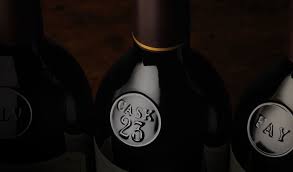
Subscribe to our newsletter
Unveiling the Luxury Wine Market
Balancing Exclusivity and Sustainability
6/5/20232 min read


Introduction
Luxury markets have a unique problem - maintaining the exclusivity and allure of their products while managing inventory and resources. Recently, the luxury fashion industry has come under fire for the destruction of unsold stock to preserve brand exclusivity. But what about the luxury wine industry? Does a similar issue exist?
While both markets cater to discerning audiences who appreciate quality and exclusivity, their stock management approaches differ substantially. Luxury wines, in particular, follow a unique model.
Firstly, each bottle of luxury wine is a testament to a specific vintage year, a singular terroir, and the skill of the winemakers. Its value and appeal may even increase over time, a rarity in the realm of luxury fashion.
Secondly, luxury wine producers often limit their output to ensure quality and maintain exclusivity. This naturally controls supply and helps circumvent the problem of overstock.
Finally, luxury wine can be reassigned or relabelled if it fails to meet the expectations of a particular label, instead of being destroyed.
This sustainable and mindful approach by the luxury wine industry is exemplary. It demonstrates that luxury and sustainability can coexist and thrive, delivering exceptional products without compromising our natural resources.
The Principles of Luxury
The luxury wine industry hinges on a few essential principles that set it apart.
Scarcity: The idea of 'limited edition' is a key factor in luxury markets. By restricting production, luxury wines create a sense of scarcity, adding to their allure.
Quality: Luxury wines are synonymous with superior quality. From the selection of grapes to the meticulous crafting process, the focus on quality is relentless.
Craftsmanship: The art of winemaking is revered in the luxury wine industry. Skilled winemakers and their teams put their heart and soul into creating each bottle. It's this human touch that imbues luxury wines with an added layer of exclusivity.
Heritage and Provenance: Luxury wines often come from vineyards with rich histories. The story of the vineyard and the origin of the wine contribute to the overall luxury experience.
Personalisation: The opportunity to create unique experiences, like private tastings or vineyard tours, offers an added dimension of luxury.
Conclusion
The luxury wine industry provides a perfect example of how industries can maintain brand exclusivity while operating sustainably. It offers lessons in scarcity, quality, craftsmanship, and sustainability that other luxury sectors could learn from, ensuring that their operations contribute positively to both their customers and the planet.
